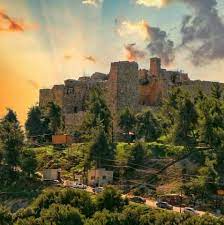Jerash
About Jerash
Jerash city is considered one of the most important archeological cities in the world. The history of this city goes back to the date of its establishment in the era of Alexander the Great in the fourth century BC. It enjoyed tranquility, stability and peace. It had been influenced by the Roman culture, and became one of the Decapolis (the alliance of ten cities).Jerash is one of the agriculturally rich governorates in Jordan. Several crops are cultivated in it, especially olive trees that produce the best qualities at local olive mills, mills of both traditional and modern types. In Jerash, there are some of the old olive trees in the region, where some are hundreds of years old that are locally called Roman olive trees, in reference to the era when Jerash was a Roman city. Fruits and cereals are cultivated in Jerash, but at a lesser extent.
Jerash climate is a Mediterranean climate, which is cold to mild in winter, and hot in summer. Yet, locally, it is considered one of the moderate climates in Jordan. In Jerash and its surroundings, there are some high peaks, such as (Thaghrat Asfour), which gets blocked in winter due to accumulated snow. Nevertheless, the Governorate is considered a main destination for local internal-tourism during summer, as the weather is usually mild compared to other regions in Jordan, and for its woody nature.
